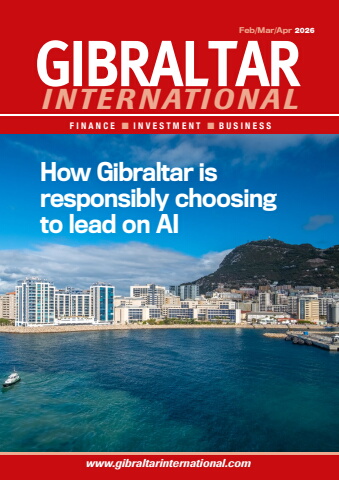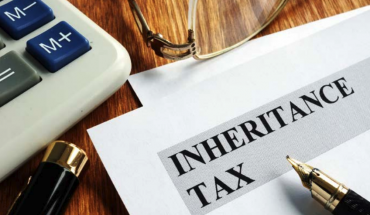Tuning into TV leads to broadband wars
Telecommunication company profits are under pressure as competition intensifies, prices fall across the board and demand for service content grows. Ray Spencer looks at how, in a small market, the suppliers of broadband Internet services are counting on diversification to maintain business growth
High bandwidth, superfast broadband services have been available for well over a decade to Gibraltar’s eGaming and financial services sector businesses fuelling the growth of State-owned Gibtelecom (Gibtel) and private concern, Sapphire Networks.
But with uncertainty over expansion of the jurisdiction’s all-important Internet gambling sector (as a result of a spate or industry mergers and acquisitions), the two largest telecoms suppliers are being joined by two smaller firms in a bid to attract residential custom.
More than £25m has been invested by three firms on installation of fast broadband through new fibre optic cables offering download speeds of 100mps or more – GibFibreSpeed, an offshoot of old-established local firm, A J Sheriff Electrical, even boasts 200mps, way more than most computers can handle!
A readily available superfast bandwidth of 100mbs puts Gibraltar “well ahead of the EU digital agenda on delivery of broadband speeds”, points out Gibtel chief executive Tim Bristow, who with a claimed 90% broadband market share says his fibre cabling reaches directly to homes and offices throughout The Rock, or within 500m of their premises.
Sapphire Networks is spending some £5m over three years on top of the £10m already invested in fibre optic cabling to extend its network beyond the estimated 70% of eGaming companies it presently supplies, to reach small and medium sized businesses (SMB) and also to homes through its new u-mee subsidiary.
A necessary move
u-mee claims it can already reach more than half of residential and business properties with fibre optic cable and will be everywhere by mid-next year, while GibFibreSpeed says its 50% coverage will exceed 60% by year-end and 80% by 2016.
Sapphire has been doing well in gaming in recent years, a sector that is still growing, but diversification into the residential market was seen as “a necessary move”. As Sapphire Networks and u-mee chief executive, Lawrence Isola, explains: “Gaming revenues are not growing; we are selling more capacity for less and that is part of the reason for going into other areas – banks, small businesses and [homes]”.
The choice has been between offering residential services “or do we stick with local business and make hay while the sun shines without diversifying”. Sapphire decided a year and half ago to extend fibre to the home. “It wasn’t an easy decision to go into the residential market, because it is without doubt a risky investment given the size of our economy,” Isola observes.
Given a small market – an estimated 15,000 residential dwellings, plus the data hungry gaming companies and thriving business community – financial returns are uncertain.
Gibtel’s 2014 income stalled at £41.9m, the result of price competition in key sectors such as data storage centres, and the bandwidth supplied to eCommerce and eGaming. “Last year we announced price reductions of between 4-25% and this year we have taken further steps with price reductions”, Bristow explains.
With the intervention 18 months ago of Financial Service Minister, Albert Isola – Lawrence’s brother – the gaming companies have seen prices fall. “The price is continuously coming down – it’s probably 70% down on those from 2-3 years ago for the gaming community. Its been the combination of government intervention and competition with Gibtelecom”, the Sapphire chief executive suggests.
Now the retail cost of broadband has become the battleground. Bristow denies the reduction in Gibtel’s publicly advertised rates are primarily the result of competition. “It was something we had been meaning to do anyway, because we had always recognised that our prices were comparatively high, compared to some larger places”, he maintains.
Gibtel has twice cut its original £96pm price for 100mbs internet connection, to today’s £54pm! The telco sells 16mbs services for £28pm, little different to its 8mbs and 4mbs offerings.
Internet speed is as promised
Even so, Bristow is “most disappointed” with the take up of higher Internet speeds, being “nowhere near as great as we wanted; most people have stayed around the lower bandwidths in the 4-8mb offerings we always had when we ran them over ADSL”.
One reason, “is the fact that what we offer is what you get”, suggests Bristow. In another place, a 50mbs [download contract] may rarely run beyond 8mps “whereas when we offer 8mbs, broadly speaking you are getting it.” However, actual speed can be reduced: if copper wire is being used to households, or the number of devices being used at the same time, it can slow down individual units.
Gibtel’s Internet revenue accounting for 13% of the total, saw 7% growth – “more customers joining every month still”, Bristow notes, adding “whether we get hit in this area by competitors has yet to be seen – how much they will eat of our cake”.
Attractive add-on services are growing. u-mee offers free voice calls over the Internet (VOIP) as part of, or in addition to, users’ Gibtel landline number. Normal fixed line ‘phone use has declined for years throughout the world – however, at £7.2m it still accounts for 17% of Gibtel revenue after falling 5% in 2014. “One reason is that people are using more data to communicate [on computers and mobile], and second, there are disruptive technologies where people are able to use voice services and not having to pay for it [Skype, etc]”, he explained.
TV is an attractive, potentially profitable, but contentious area. UK terrestrial channels – BBC, ITV, Channel 4, etc – plus Sky, all refuse to transmit outside of the UK under EU agreements, yet with availability of fast internet connections IPTV makes viewing possible throughout the world.
A J Sheriff Electrical, which as Gibsat has been providing television services through a UK supplier to around 85% of The Rock using cable for 27 years, began its GibFibreSpeed to home internet & TV service 6 months ago. “We tried to get contracts with the channels, but they said ‘Gib is not part of the UK, nor part of Spain, it’s nowhere’ – the revenue is too little for them to bother about”, explains Andrew Sheriff. The company’s Internet offering ranges from 10mps for £10pm to 200mps costing £65.
Most TV ‘provided legally’
Isola says u-mee is now offering HD quality access to more than 120 TV channels, including from all UK broadcasters, with catch-up, rewind and recording as part of its fast broadband account.
“We are bringing most of the TV channels down from the UK by fibre optic cable… we are not capturing channels over the internet,” he declares and insists that “most of our channels are provided legally”, with efforts being made to legally tie up similarly other “relevant channels”. The u-mee offer for 50mbs Internet connection, VOIP and TV, is £39pm.
His u-mee diversification “will either have been a big success or a flop”, but he hopes the new residential and SMB market offering will in future account for “30-35% maybe of profitability – but I could be wrong here”.
Gibtel has flirted with TV-down-the-line for years. Yet Bristow maintains: “Gibtelecom, as the leading telecommunications provider on The Rock, has to do things properly and sensibly. Yes, perhaps where others operate in ‘grey’ areas, we choose not to – but we are looking at the matter again to see if there is a way we can bring certain TV and DVD services. I suppose we are encouraged to do so by the competition.”
The Gibraltar government bought the 50% stake it didn’t own in Gibtel from Telekom Slovenije in January for £47.7m, a move prompted by privatisation of the eastern European telecoms giant. Dr Joseph Garcia, deputy Chief Minister, said: “There have been several expressions of interest, [but] the Government is not in a hurry to find a suitable partner.”
In the meantime, Bristow emphasises: “Gibtelecom, whether partially or fully State-owned, has to operate within what is a very clear umbrella of the law and, therefore, we are not in a position where we can afford to take risks in a way that more margin players perhaps can.” He thought it too early to say how successful his competitors might be.
However, it’s a different story with mobile, where the demand for data on the move – even live or catch-up TV shows – is growing exponentially. Mobile, where Gibtelecom dominates, “is our really big potential growth engine”, and “competitors haven’t seemed to fair as well”, Bristow reported. Mobile produces £12.3m for Gibtel -up by 2% in 2014 after price reductions – and at 29% it is the largest revenue sector.
A license to provide 4G services to 95% of Gibraltar’s population by the end of the year was enhanced for Gibtel by a £3.5m deal with Ericsson to provide 4G+ services providing 150mps downloads for mobile users. Fifth generation mobile facilities are on the horizon.
While u-mee is not extending into mobile connections, it plans by the year-end to compete through a mobile application that links to Sapphire’s switch and with VOIP subscribers keep their existing ‘phone numbers they gain a new number that will ring in the home and mobile at the same time anywhere in the world.
Smile, a small mobile ‘phone operator owned by Gibraltar-registered EaziTelecom, has been offering cheap pre-pay mobile ‘phone services for two years, and was reported to be up for sale last year, however, no company representative was available to comment.
Fierce price competition
For Gibtel, the big diversification has been its US$31m investment for a 4.1% stake in the Europe India Gateway (EIG) submarine telecommunications cable, selling unused capacity to telcos worldwide for the past two years. Around half of its wholesale capacity has been taken amidst “fierce price competition” from Gibtel’s international partners, “some with submarine departments much bigger than our entire company”.
The investment has a projected 15% return over the full 25 years expected EIG life and was 50% funded from Gibtel working capital, the balance via a bank loan. The company has 15 carrier partners, including a small amount into Europe for Telstra, the Australian telco, as well as 15 consortium members.
Now, Gibtel claims to be just about “the biggest, smallest global carrier around the world – in terms of reach” and Bristow notes: “No-one to my knowledge of our sort of size has moved into this global communications space.” He expects shortly to sign a deal with Asia “to carry a substantial amount of traffic on a back-to-back deal”.
Bristow has ambitions to join other submarine cable consortia (subject to Board and shareholder approval), and sees connecting further to Africa, perhaps via Morocco, as a natural long-term objective – “it’s not an overnight win” involving “quite serious money”.
The 2014 annual report for Gibtelecom shows net current assets of about £50m and “a very healthy balance sheet, so we can attract leverage”, Bristow points out.
A lot of people think worldwide telecommunications is via satellite, “but 96%+ of the world’s traffic is by submarine cable and the cost of investing in those cables and operating them is the same irrespective of the traffic that is on them”, he adds.





